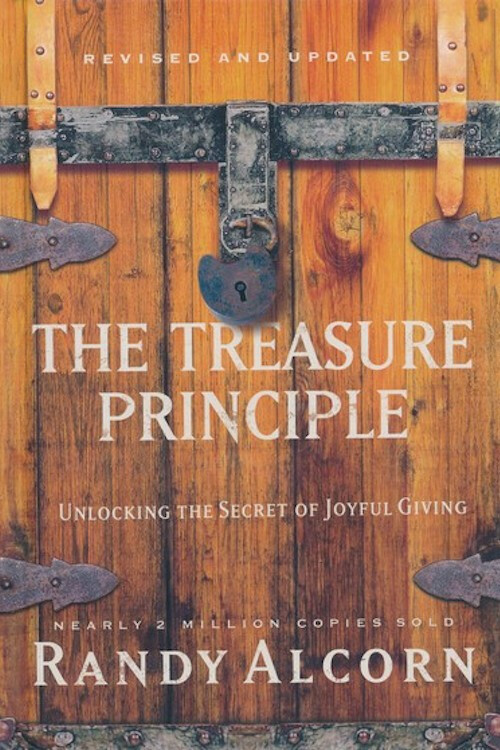Family Finances

Money is often talked about in society, but also in the Bible. How does the Bible say to balance finances with relationships?
Your Family’s Finances
The Bible has a lot to say about money and much that is specifically of value for someone trying to be intentional about family relationships. A financial treadmill of working and consuming can dominate your energy and thoughts to the degree that your good intentions for family relationships get squeezed out.
How can you master your money in order to be intentional in other areas? How can you turn your money from being a challenge to your spiritual and relational goals to being an asset?
STEP ONE: Be Content and Faithful in Little
We often think the answer to our money problems is to have a little more. Solomon observed, “Whoever loves money never has money enough; whoever loves wealth is never satisfied with his income” (Ecclesiastes 5:10). The writer of Hebrews countered, “Keep your lives free from the love of money and be content with what you have, because God has said, ‘Never will I leave you; never will I forsake you’” (Hebrews 13:5).
Being content with what you have does not mean God cannot bless you with more. Two of the servants in the parable of the talents in Matthew 25:14-30 learned the value of being faithful with whatever they had. To them the master said, “You have been faithful with a few things; I will put you in charge of many things.“ We learn from this parable that God wants to see what we will do with a little before He will entrust us with more.
STEP TWO: Value Relationships Over Things
 In Romans 13:8, the apostle Paul says, “Let no debt remain outstanding, except the continuing debt to love one another, for he who loves his fellow man has fulfilled the law.” Most Christian financial advisers stress the value in eliminating and staying out of debt as much as possible. The less debt you have, the more you are able to focus on the “debt to love one another.” Focusing on relationships over things also can cause you to reconsider your purchasing and work decisions. Isaiah 55:2 asks the question, “Why spend money on what is not bread, and your labor on what does not satisfy?” Do you ever feel like you are working hard to pay off debt for purchases that were not essential and did not even satisfy? How could you simplify your expenses and make them more consistent with your family priorities in this season of life?
In Romans 13:8, the apostle Paul says, “Let no debt remain outstanding, except the continuing debt to love one another, for he who loves his fellow man has fulfilled the law.” Most Christian financial advisers stress the value in eliminating and staying out of debt as much as possible. The less debt you have, the more you are able to focus on the “debt to love one another.” Focusing on relationships over things also can cause you to reconsider your purchasing and work decisions. Isaiah 55:2 asks the question, “Why spend money on what is not bread, and your labor on what does not satisfy?” Do you ever feel like you are working hard to pay off debt for purchases that were not essential and did not even satisfy? How could you simplify your expenses and make them more consistent with your family priorities in this season of life?STEP THREE: Re-Orient Your Fears and Desires
People with various relationship goals—wanting to get married, considering starting a family, or wanting to help a child through a tough season—may not realize just how much those goals can be undermined by a consumer-driven culture playing on their fears and desires.
God tells us we should not fear what the world fears (1 Peter 1:17; 3:13-15) or desire what it desires (2 Peter 1:3-8). What would it look like in your life if you re-oriented your fears and desires toward God’s design? The more you look to Him for your security and provisions (1 Peter 5:7 and Philippians 4:19), the more you are directed to the eternal relationships around you (Ephesians 3:14-19 & John 13:34-35). Allowing God to re-direct your fears and desires frees you up to invest in family and to give generously to other families who are praying for God’s provision.
recommended books
The Treasure Principle
By Randy Alcorn
Discover how the joy of giving can make your life richer, starting today. Bestselling author Randy Alcorn introduced readers to a revolution in material freedom and radical generosity with the release of the original The Treasure Principle in 2001. Now the revision to the compact, perennial bestseller includes a provocative new concluding chapter depicting God asking a believer questions about his stewardship over material resources.
Jesus spent more time talking about money and possessions than about heaven and hell combined. But too often we’ve overlooked or misunderstood his most profound teaching on this topic, from his words in Matthew 6. Jesus offers us life-changing investment advice. He actually wants us to store up treasures for ourselves—just not here on earth. Instead, he urges us to store our treasure in heaven, where they will await us, and last forever. We can’t take it with us—but we can send it on ahead!
Readers are moved from the realms of thoughtful Bible exposition into the highly personal arena of everyday life. Because when Jesus told His followers to "lay up for yourselves treasures in heaven," He intended that they discover an astounding secret: how joyful giving brings God maximum glory and His children maximum pleasure. In The Treasure Principle, you’ll unearth a radical teaching of Jesus—a secret wrapped up in giving.
Once you discover this secret, life will never look the same. And you won’t want it to be.
"Supercharged with stunning, divine truth! Lightning struck over and over as I read it."
- John Piper, Senior Pastor, Bethlehem Baptist Church, Minneapolis


